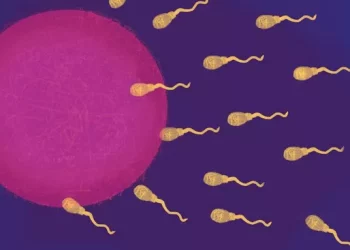Retrograde ejaculation occurs when semen enters the bladder instead of exiting through the penis during ejaculation. This condition can be distressing and may affect sexual satisfaction and fertility. One of the key causes of retrograde ejaculation is the use of certain medications. In this article, we will explore various medications that can lead to retrograde ejaculation, how they do so, and potential alternatives or solutions.
Retrograde ejaculation is a condition where semen is redirected into the bladder instead of being expelled through the penis. This condition can be caused by a variety of factors, including neurological conditions, surgical procedures, and medications. Understanding how different medications can contribute to retrograde ejaculation is crucial for both patients and healthcare providers. This article aims to provide a detailed overview of the medications that can cause retrograde ejaculation, the mechanisms involved, and management strategies.
Understanding Retrograde Ejaculation
Retrograde ejaculation occurs when the normal flow of semen is disrupted. During a typical ejaculation, the muscles of the bladder neck contract to prevent semen from entering the bladder. Instead, semen is expelled through the urethra. In retrograde ejaculation, this mechanism fails, and semen is redirected into the bladder. The semen is later expelled during urination.
Medications That Can Cause Retrograde Ejaculation
Certain medications can interfere with the normal ejaculation process by affecting the muscles or nerves involved. The following sections discuss various classes of medications that may lead to retrograde ejaculation.
1. Alpha-Blockers
Alpha-blockers are commonly prescribed to treat conditions such as high blood pressure and benign prostatic hyperplasia (BPH). They work by relaxing the muscles in the prostate and bladder neck. While effective for their intended purposes, alpha-blockers can also impact the ejaculatory process.
Common Alpha-Blockers:
- Doxazosin
- Terazosin
- Prazosin
- Alfuzosin
Mechanism of Action:
Alpha-blockers inhibit alpha-adrenergic receptors, which are responsible for constricting the muscles in the bladder neck. This relaxation can prevent the proper closure of the bladder neck during ejaculation, leading to retrograde ejaculation.
2. Antidepressants
Certain antidepressants, particularly those that affect serotonin levels, can cause retrograde ejaculation as a side effect. Selective serotonin reuptake inhibitors (SSRIs) are the most commonly implicated.
Common SSRIs:
- Fluoxetine
- Sertraline
- Paroxetine
- Citalopram
Mechanism of Action:
SSRIs increase serotonin levels in the brain, which can affect the autonomic nervous system’s regulation of ejaculation. This interference can disrupt the normal process, leading to retrograde ejaculation.
3. Antipsychotics
Antipsychotic medications, used to manage psychiatric conditions such as schizophrenia and bipolar disorder, can also cause retrograde ejaculation.
Common Antipsychotics:
- Risperidone
- Olanzapine
- Quetiapine
- Aripiprazole
Mechanism of Action:
Antipsychotics alter neurotransmitter levels, including dopamine and serotonin. These changes can affect the autonomic control of ejaculation, leading to retrograde ejaculation.
4. Medications for High Blood Pressure
Apart from alpha-blockers, other antihypertensive medications can also cause retrograde ejaculation. These include drugs that affect blood pressure regulation and smooth muscle function.
Common Medications:
- Clonidine
- Methyldopa
- Minoxidil
Mechanism of Action:
These medications can influence the muscles involved in ejaculation, either directly or indirectly. By affecting blood vessel constriction or smooth muscle function, they can disrupt normal ejaculation.
5. Medications for Benign Prostatic Hyperplasia (BPH)
In addition to alpha-blockers, other drugs used to treat BPH can also contribute to retrograde ejaculation.
Common Medications:
- Finasteride
- Dutasteride
Mechanism of Action:
These medications work by reducing the size of the prostate gland. While this can alleviate BPH symptoms, it can also affect the ejaculation process, leading to retrograde ejaculation.
6. Other Medications
Other drugs that can impact ejaculation include:
Anticholinergics:
- Atropine
- Scopolamine
Mechanism of Action:
Anticholinergics affect the parasympathetic nervous system, which is involved in the ejaculation process. By altering nerve signals, these medications can lead to retrograde ejaculation.
Diuretics:
- Furosemide
- Hydrochlorothiazide
Mechanism of Action:
Diuretics affect fluid balance in the body and can influence the ejaculatory process. Their impact on fluid regulation can sometimes lead to retrograde ejaculation.
See Also: Azoospermia: Causes, Diagnosis, and Treatment
Diagnosis and Management
Diagnosing retrograde ejaculation involves a thorough medical history, physical examination, and sometimes additional tests. If a medication is suspected to be the cause, the healthcare provider may review the patient’s medication list and consider alternatives.
Diagnosis
Medical History:
The healthcare provider will ask about the patient’s symptoms, medication use, and any other relevant medical conditions.
Physical Examination:
A physical exam may include an evaluation of the genital area and prostate.
Tests:
- Urinalysis to detect the presence of semen in the urine
- Post-ejaculatory urinalysis to assess the amount of semen in the bladder
Management Strategies
Medication Review:
If a medication is identified as the cause of retrograde ejaculation, the healthcare provider may consider adjusting the dose or switching to a different medication.
Alternative Medications:
- For alpha-blockers: Consider alternatives like 5-alpha reductase inhibitors (e.g., finasteride).
- For antidepressants: Explore options with fewer sexual side effects, such as bupropion.
- For antipsychotics: Evaluate the possibility of switching to a different antipsychotic with a lower risk of sexual side effects.
Treatment for Retrograde Ejaculation:
- Medications: Medications like pseudoephedrine can help increase muscle tone in the bladder neck, reducing retrograde ejaculation.
- Lifestyle Changes: Addressing any underlying health issues or lifestyle factors contributing to retrograde ejaculation may be beneficial.
- Counseling: Psychological counseling or therapy can be helpful if the condition affects emotional well-being or sexual satisfaction.
Conclusion
Retrograde ejaculation is a condition that can significantly impact a person’s sexual health and fertility. Understanding the role of various medications in causing this condition is crucial for effective management. By recognizing the potential side effects of medications, healthcare providers can make informed decisions to minimize the risk of retrograde ejaculation. Patients experiencing symptoms should consult their healthcare provider to discuss potential medication-related causes and explore appropriate treatment options.
This comprehensive overview highlights the medications that can cause retrograde ejaculation and provides guidance on diagnosis and management. By being informed about the potential impact of medications on ejaculation, patients and healthcare providers can work together to address this condition and improve overall sexual health and satisfaction.
Related Links:



























